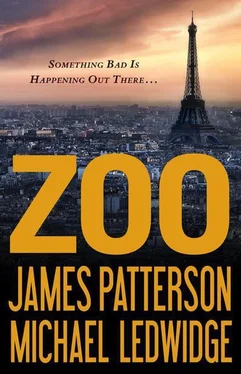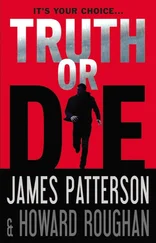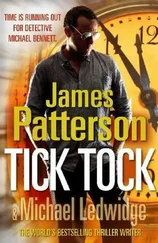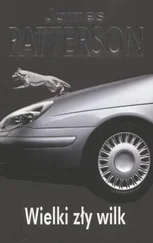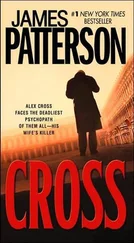At that moment, we saw a pickup truck roar up beside the hotel and come to a squealing, jerky halt. The smoky diesel engine of the parked truck hammered and chugged. A middle-aged African in a crisply ironed white shirt got out of the passenger door and marched into the bar. His head was roughly the size and shape of a basketball. Two young soldiers carrying AK-47s hopped out of the truck bed and filed in behind him. There was an immediate and palpable tension in the bar. The two drunk men at the nearby table quit talking.
“That’s Assistant Superintendent Mokgwathi,” Robinson whispered to me. “Maun’s top cop. What now?”
The piano player stopped playing, and the vacuum of silence was louder than the music. The fountain splashed, glass clinked behind the bar.
“I must speak to a Mr. Oz,” Mokgwathi said to the room in a deep and musically sweet African accent. “A Mr. Jackson Oz.”
My legs twitched, and I was about to step forward when Robinson squeezed my shoulder and kept a vise grip on it. Chloe’s eyes flashed at me from the bar and quickly looked away. Robinson didn’t let go until the policemen, getting nothing from the room but vacant looks, pivoted on their jackboots and left the bar.
“What’s up?” I said. “Why would they be looking for me?”
“Do you have your plane ticket?” he said.
I nodded.
“Good,” Robinson said, grabbing my bags and jerking his head in the direction of the street. “My truck’s around the corner. It’s time to get you to the airport and onto your plane.”
“I don’t understand,” I said.
“Someone in the hotel must have seen your camera and alerted the police,” he said. “Tourism is big business here, man. One of the only businesses. If word gets out that animals have gone bonkers and are killing tourists, that’s bad news for Botswana’s GDP, isn’t it? This is very dangerous for you.”
“What is dangerous?” Chloe said. She’d watched the episode with the cops over the rim of her drink and now stood beside us with her bags.
“I’ll tell you on the way to the airport,” I said, shouldering her carry-on as I led her toward the street.
AT THE AIRPORT, all the seats were taken in the Air Botswana waiting area. The terminal was filled to capacity, crowded with tourists coming in from evacuated safari camps.
The air buzzed with fear and nervous excitement. The tourists looked scared and confused, though I was glad to see that many of them were texting or talking on their cell phones. With the threat of a government cover-up looming, I hoped word of this craziness was already leaking to the press.
It took no small amount of persistence, as well as a folded hundred-dollar bill, and then another, to snag Chloe a seat on the midnight flight to Johannesburg with me. From there, we’d be going our separate ways. I was headed back to the US, I hoped for a press conference at which I would show the lion footage. Chloe needed to return to Paris.
I was glad I’d decided to leave the camcorder with Robinson when the airport scanners pulled me out of the security line for a more thorough search. I held my breath as the inspectors tossed my bags and wanded me. They missed the DVR tape I’d hidden in my pants, taped against the inside of my thigh. No TSA-style pat-downs out here, thank God.
As I was standing by the window at the gate, looking out onto the runway, my stomach dropped like an anchor when what looked like a military cargo plane blasted in. It was thick and snub-nosed, painted brown. Was the Botswanan military really crazy enough to try to quarantine this thing? I didn’t want to find out.
Things were changing right in front of my eyes, I realized. Whatever this phenomenon was, it was spreading, getting stronger, catching hold. The jittery feeling of a rising crisis was in the air, like the feeling before a hurricane.
But I was convinced HAC wasn’t a local problem. It was a global one. Governments and military forces have enough trouble dealing with large-scale problems one at a time. How were they going to be able to assist everyone everywhere, all at once? This problem would call for an unheard-of amount of global cooperation. And I didn’t see it happening yet.
“So you really think this thing is real, Oz?” Chloe said. Her eyes were focused out the window. Outside on the rough tarmac, soldiers spilled from the plane, Trojan Horse–style. “All around the world, animals suddenly attacking humans for no reason? And not other animals? I mean—how can that be? Why? Why now? It sounds—er—completely crazy.”
“I don’t know how or why, Chloe,” I said. “All I know is that bird populations don’t just double in the course of several years, and lions don’t just suddenly, radically, inexplicably change their hunting behaviors. Something very weird is going on.”
The temporary cell phone I’d bought in Maun that day rang as we were standing in line to board the plane. It was a voice mail from Gail Quinn, a former professor of mine at Columbia. It was good news. She’d shaken some trees and managed to arrange a meeting about HAC with Nate Gardner, the senior senator from New York.
“What is it?” Chloe said when I hung up, smiling. We were on the small passenger plane, hunching under the low ceiling.
“Good news. I have a meeting with one of the most prominent leaders in Congress about all this. With the videotape, I might have a real shot at getting the US government to help.”
A depressing thought hit me as I was stowing my bag in the overhead. What if Senator Gardner reacted to me the same way Chloe initially had? Since I dropped out of Columbia before I received my doctorate, what if he thought I was just some wacko blogger, spinning Internet conspiracy theories between naps on my mother’s couch? Sometimes I forgot to step back and look at how nut-jobby I could seem.
“Hey, I have a crazy idea,” I said as I sat down next to her. “Because I’m crazy. Chloe, I know you have a lot to do after all this, but would it be possible for you to come with me?”
“What?” she said. “Go with you to the US?”
“You’re right,” I said, facing forward. “Like I said, it’s crazy. Forget about it.”
“No, wait,” Chloe said. “I mean why? Why do you want me to come?”
“Well, your credentials, for one thing,” I said. “Your degree. The École Polytechnique. You’re a credible expert. Even better, a credible European expert who’s seen and experienced the same things I have. I’m concerned that the senator might initially react to me the way you did. He’ll think I’m a crackpot. He’ll probably look at me like I’m wearing a tinfoil hat. But if you’re there with me…”
She raised an eyebrow.
“But please,” I said. “Don’t worry about it. I’ll figure it out.”
I took out my phone and pretended to play with it. Out of my peripheral vision, I picked up her aquiline nose doing a little crinkling thing as she squinted at me.
She leaned back in her seat as she let out a deep breath.
“It isn’t a choice,” she said as the plane began to taxi. “There really is some sort of environmental disaster happening. What kind of biologist would I be if I didn’t do everything I could to solve this? Besides, you saved my life. I owe you a favor. So I’ll go. On one condition.”
“Anything.”
“I hate flying. Can I just—er—hold your hand as we take off?”
I smiled as I slipped her fine-boned hand in mine.
“Twist my arm,” I said.
THE BROADWAY LOCAL clatters past on the elevated subway track when Natalie Shaw arrives at the door of Oz’s building.
It’s just past five a.m., still dark, though the sky is beginning to turn blue, and the steel-shuttered Harlem streets are empty. New York City actually does sleep after all, she thinks. The backs of her knees and armpits are misty with sweat in the already warm predawn summer air. She yawns as she keys herself into the dingy lobby. She’s stopping by on her way home from the hospital, having just put in a thirty-hour shift, and she’s half dead on her feet.
Читать дальше
